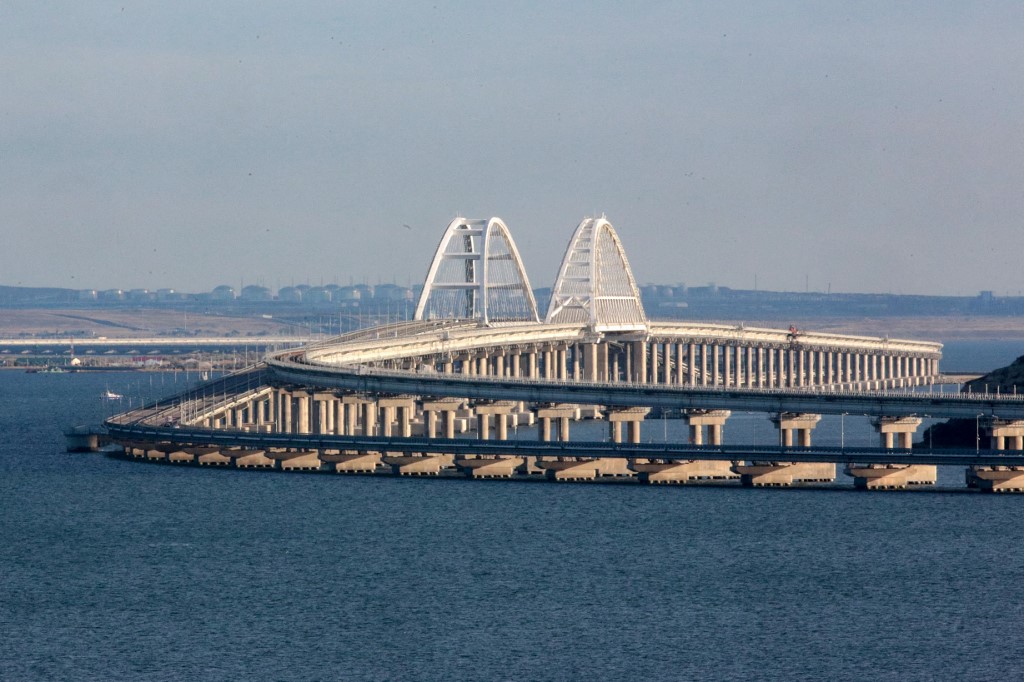Ukraine’s environment has been the “silent victim” of the Russian invasion, according to the country’s environment minister Ruslan Strilets, but thanks to app-wielding Ukrainian citizens, he can now put a price on the damage – more than €56 billion so far.
Ukraine’s minister for environmental protection and natural resources spoke with Euractiv, during his visit to Brussels on Wednesday 29 May. Strilets made clear that he had one priority in mind – making Russia pay for the pollution its invasion has inflicted upon Ukraine’s soil and air.
JOIN US ON TELEGRAM
Follow our coverage of the war on the @Kyivpost_official.
Eyeing post-war reparations, or at least future peace negotiations, the minister foresees these efforts will lead to “the first case in human history” of environmental reparations being paid by one state to another.
Ukraine began tracking war-related environmental damages when the invasion began in 2022. Since then 5,000 incidents have already been identified, which it considers to be environmental crimes, or in his words, “cases of ecocide”.
Citizens are being asked to contribute to the effort. To help them report data, Ukraine has developed a mobile application, which they can use to report fires and toxic spills.
The app also provides Ukrainians with the latest information on air, soil, water and radiation pollution.
When asked for a typical example of ecocide, Strilets cited the destruction of the Kakhovka Dam in June 2023, leading to huge flooding. “We have lost more than 14km³ of fresh water. Thousands of tons of demolition waste, washed into the Black Sea[…] A huge territory of our forest was flooded, and we understand that the half of this forest will die.”

Zelensky: November-December Sees Record Russian Losses in Combat
Ukraine estimates the cost of this alone at €3.8 billion.
Ukrainian environmental protection today
The Minister said that it was “not hard” to prioritise environment protection during war time.
“Ukraine is a civilized country which understands that the environment is the future,” he said, adding that “everybody understands it, from the President to the staff of other ministries.”
As evidence he pointed to a high-level government working group focused on the environment, co-chaired by former European Environment Commissioner Margot Wallström and Andriy Yermak, the head of office of President Volodymyr Zelenskyy.
Though acknowledging there is a trade-off between environmental protection and business activities, he argued that “it’s absolutely possible to find this balance.”
Food such as wheat is a key export for Ukraine, generating important revenues necessary to keep the country’s economy afloat. He explicitly linked Ukraine’s clean-up efforts with its farming output, noting that 150,000-155,000 km2 of Ukrainian territory is potentially mined, and much of this is agricultural land. “If we will not clean up this territory, the grain will not be good for export,” he explained.
Though highlighting air, soil and water pollution, he was less focused on wider biodiversity impacts. He was sceptical of the possibility for destroyed landscapes being rewilded – exploding mines could create forest fires – and when asked whether Ukraine would be open to setting aside land for nature restoration, his response was firm: “Let’s speak about it after the war.”
After the fighting stops
He was positive on Ukraine’s role in the energy transition – particularly how it could supply highly-demanded critical raw materials, like lithium.
He had just met the European Commission’s ‘battery czar’, Executive Vice President Maroš Šefčovič, and that Ukraine has updated legislation and digitalised geological data so that the country could be “the partner of the EU” in critical raw materials.
For the decarbonisation of industry, war has brought both opportunities and challenges.
Citing EU rules on environmental industrial pollution, which heavy industry had resisted prior to the war. “But today the Russians destroyed the bigger part of our heavy industry. And implementing the European directive is the single way to restore this heavy industry , with the best available technologies.”
However in the immediate term there are limits to Ukraine’s transformation potential: “First of all, we need to talk not about decarbonisation […] we need to talk about the decrease in pollution levels,” the Minister underlined.
When asked whether new Ukrainian factories could incorporate zero-carbon manufacturing processes, for example using hydrogen, he pointed out the challenges of attracting large investments for such projects, in a country which is still at war.
“We need to remember that we have much bigger challenges than our industry,” he emphasised, pointing out that land mines today still litter up to a third of Ukraine’s territory.
You can also highlight the text and press Ctrl + Enter






